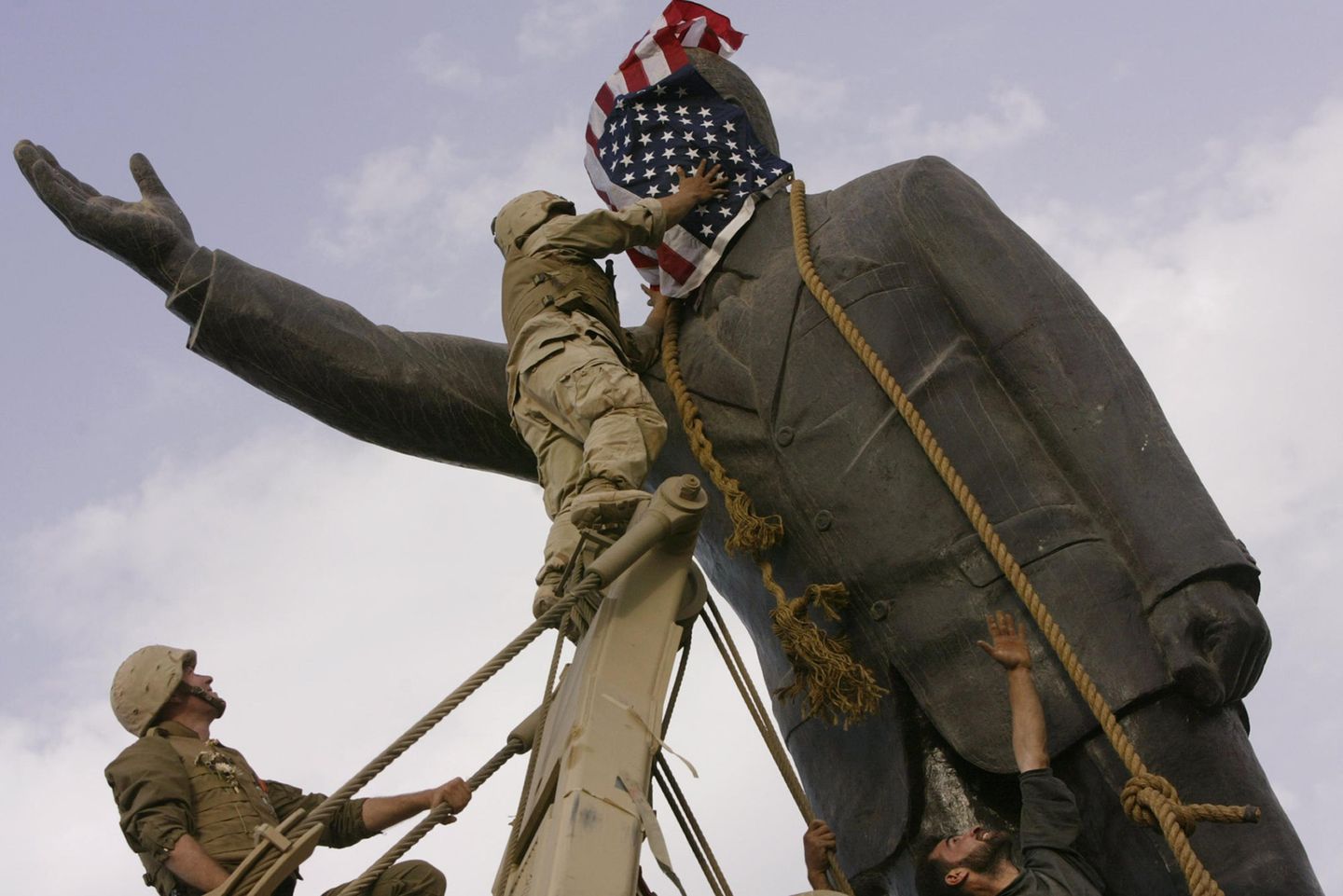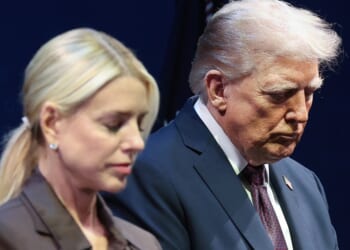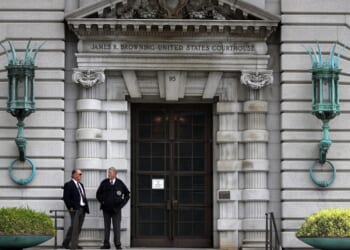
The U.S. hasn’t had troops in Afghanistan for four years, yet nearly a quarter century after al Qaeda’s Sept. 11 sneak attack on America, Congress’ authorization for the president to conduct a retaliatory global war on terrorism remains in full force.
It has outlasted four presidential administrations as well as Osama bin Laden and his successor, Ayman al-Zawahri. It has been used to justify U.S. military action in more than 20 countries.
When a first-term President Trump suggested potential strikes against Iran, it was the 2001 Authorization for the Use of Military Force that his aides suggested gave him legal authority to attack without going to Congress for new approval.
When President Biden ordered bombs dropped on targets in Iraq last year, he also cited the 2001 authorization.
To its supporters, the military force authorization is evidence that the U.S. learned the lessons of 9/11, allowing a president to nip emerging dangers in the bud. To opponents, it’s a symptom of America’s aggressive war footing over the past 24 years, with collateral damage to civil liberties and Uncle Sam’s wallet.
Yet it has proved tough to kill.
SEE ALSO: Trump to mark 9/11 anniversary at Pentagon; Vance heads to ground zero
Rep. Gregory Meeks of New York, the top Democrat on the House Foreign Affairs Committee, tried in the last Congress. He wrote legislation repealing and replacing the 2001 authorization with a more limited grant of terrorism fighting powers, focused only on preapproved “terrorist hot spots.”
His proposal failed to gain traction.
Carlissa Carson, a law professor at Samford University and former Army intelligence officer and judge advocate in the Army Reserve, said the sheer breadth of the military use authorization, or at least what it has become, is one reason it has had such staying power.
“The 2001 AUMF has no expiration date and no geographical limitations. Additionally, phrases such as ‘associated forces’ have allowed presidents from Bush to Biden to stretch the 2001 AUMF beyond its original purpose,” she told The Washington Times in an email. “It was enacted as a direct response to the 9/11 attacks, yet it’s been used to combat forces such as ISIL that did not exist in 2001.”
Military force authorizations are creations of Congress. Lawmakers acted after presidents repeatedly committed troops to foreign entanglements without seeking congressional approval. Under the War Powers Resolution of 1973, a president who wants to keep troops engaged longer than a few months must seek a military force authorization.
Congress granted authorizations for the 1991 Persian Gulf War to boot Iraqi troops from Kuwait and the 2003 Iraq War that ousted Saddam Hussein from power.
Indeed, both also remain on the books, although the U.S. House has teed up a debate on their repeal this month as part of a broader defense policy bill.
Congress passed the 2001 Authorization for the Use of Military Force a week after the 9/11 attacks. It was approved on a 98-0 vote in the Senate and 420-1 in the House.
Rep. Barbara Lee, a Democrat now serving as the mayor of Oakland, California, was the lone dissenter.
“Sept. 11 changed the world. Our deepest fears now haunt us. Yet I am convinced military action will not prevent further acts of terrorism against the United States,” she said at the time.
The language authorized presidents to use force “to prevent any future acts of international terrorism against the United States” by nations, organizations or people deemed responsible for 9/11.
Two decades later, in 2021, the Costs of War project at Brown University calculated that the authorization had been cited as justification for military operations in 22 countries.
That included Afghanistan, where the Taliban were providing a home to al Qaeda at the time. It also justified direct attacks on targets in Djibouti, Iraq, Libya, Pakistan, Somalia, Syria and Yemen; support for other countries’ operations in Cameroon, Chad, Eritrea, Ethiopia, Georgia, Kenya, Kosovo, Jordan, Lebanon, Niger, Nigeria, the Philippines and Turkey; and ongoing detention of terrorist suspects in Cuba.
President Obama used the authority to deploy troops to battle “associates” of al Qaeda. In practice, that meant groups like the Islamic State, or ISIS, which didn’t exist in 2001.
Legal questions still surround any time a president takes military action.
When the U.S. Navy sank a boat that the Trump administration said had left Venezuela with a load of drugs and a crew of 11, Democrats demanded to know the legal justification.
Stephanie Savell, the Brown University professor who oversees the Costs of War project, wondered whether Mr. Trump would cite the 2001 military use authorization for that.
“That information has yet to come to light, and it’s possible his administration will call on that authority to retroactively report actions to Congress, down the line,” she told The Times in an email.
Ms. Carson said another issue for repeal is the nature of the terrorist threat itself, which has evolved faster than Congress can legislate.
She said that without the Authorization for the Use of Military Force, presidents could cite their inherent commander in chief powers under the Constitution. However, that’s a gray area because Congress also has war powers.
“The overlapping grant of war powers has baffled both branches for decades. Presidents are therefore more comfortable using an authorization,” she said.













